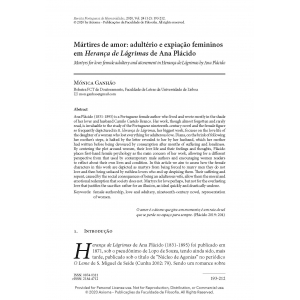Mártires de amor: adultério e expiação femininos em Herança de Lágrimas de Ana Plácido
Mónica Ganhão, “Mártires de amor: adultério e expiação femininos em Herança de Lágrimas de Ana Plácido,” Revista Portuguesa de Humanidades 24, no. 1–2 (2020): 193–212.









